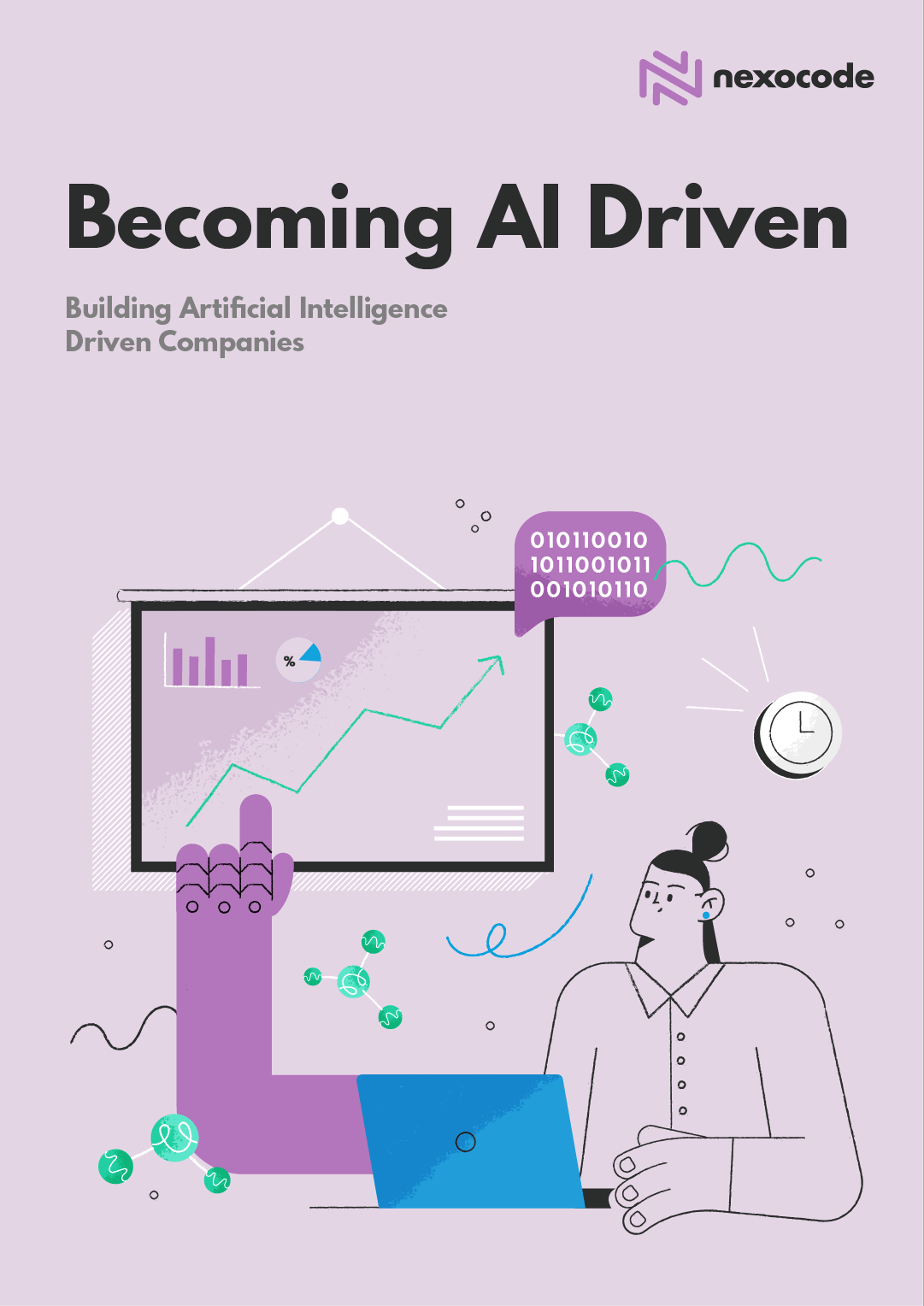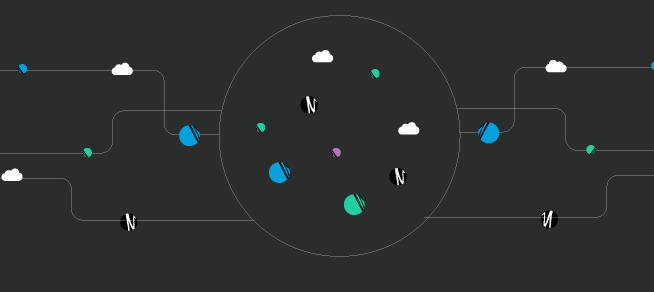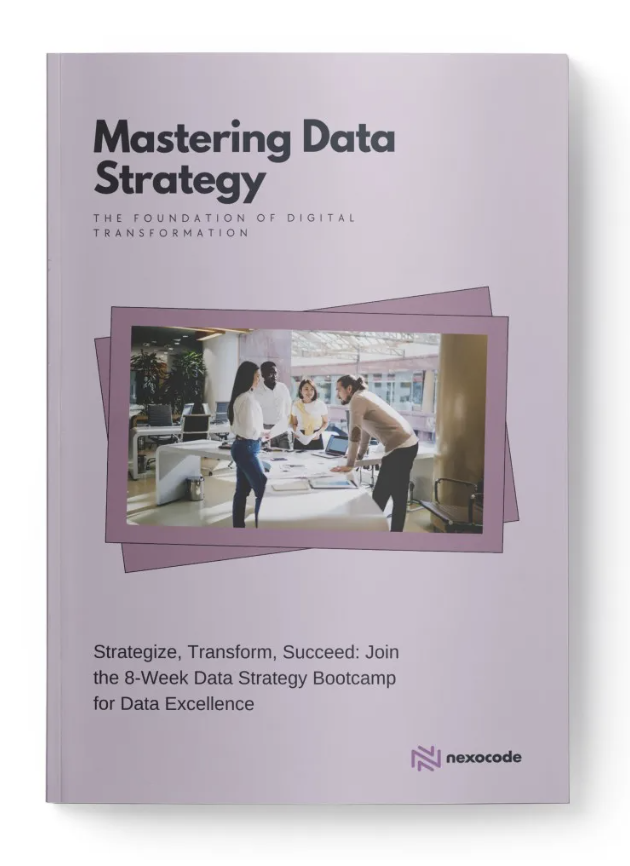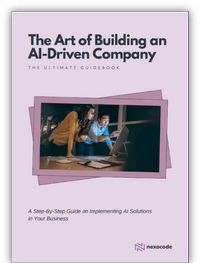In the complex world of manufacturing, companies constantly grapple with a myriad of challenges and operational inefficiencies. How can manufacturers streamline document processing to enhance knowledge management and operational efficiency? Can predictive maintenance, powered by advanced data analysis, preempt potential equipment failures, thus avoiding costly downtime? In an industry where quality control and inventory management are paramount, how can manufacturing companies leverage artificial intelligence (AI) and large language models (LLMs) to improve processes and reduce waste?
The manufacturing sector stands on the cusp of a digital revolution, with generative AI and machine learning poised to transform everything from supply chain management to production planning. Yet, the integration of these technologies raises questions about data security, the management of extensive datasets, and the ability to meet dynamic market demands. How can AI in manufacturing not only predict market trends but also adapt to them in real time, ensuring more accurate production schedules and increased customer satisfaction?
As manufacturers face the challenge of leveraging vast data, information extraction becomes a cornerstone of success. Generative AI and Large Language Models are the forefront tools shaping this frontier. In this article, we uncover how these advancements streamline information extraction in manufacturing, leading to smarter operations and a stronger competitive edge.
Key Takeaways
- Generative AI (GenAI) and Large Language Models (LLMs) like GPT-4 are revolutionizing the manufacturing industry by improving information extraction, predictive maintenance, quality defect prevention, and automating production processes.
- The combination of Retrieval-Augmented Generation (RAG) models and domain-specific LLMs has greatly enhanced the precision and reliability of data processing in manufacturing, leading to improved predictive analytics and decision-making capabilities.
- GenAI and LLMs are redefining knowledge management within manufacturing, offering benefits like enhanced customer service experience, support in quality assurance and defect detection, and boosting overall business performance by transforming data into actionable insights.
Large Language Models (LLMs) and GenAI as a Catalyst in Manufacturing
Large Language Models and Generative AI are revolutionizing the manufacturing industry by streamlining the way companies interact with vast amounts of textual data and documents. In an environment where operational efficiency hinges on the effective management and extraction of information from technical manuals, production reports, and quality control documents, LLMs and GenAI are proving indispensable. These technologies offer advanced capabilities in information extraction, enabling manufacturing companies to swiftly parse through and interpret complex datasets, thereby enhancing knowledge management practices.
By leveraging natural language processing (NLP) techniques, LLMs facilitate a deeper understanding of textual content within the manufacturing sector, from automating the classification of documents to extracting critical insights from unstructured data. This not only aids in improving product quality and compliance with regulatory standards but also optimizes inventory management by providing actionable insights into material usage and supplier evaluation. GenAI, on the other hand, serves as a catalyst, converting raw data into valuable insights and optimizing operational processes with insight extraction features. Together, these technologies are proving to be game-changers in manufacturing, transforming the way we design, produce, and deliver products.
As a result, the integration of LLMs and GenAI into manufacturing processes marks a significant shift towards data-driven decision-making, opening new avenues for innovation and efficiency in document processing and data analysis.
The advent of AI in manufacturing has ushered in an era of information extraction. Information extraction stands as a cornerstone in harnessing the full potential of the manufacturing industry’s vast reservoirs of data. It is the process that paves the way for advanced analytics and intelligent decision-making, transforming raw, unstructured text into structured, actionable insights. The journey begins with meticulous data collection and preprocessing, followed by the application of Retrieval-Augmented Generation (RAG) systems and LLMs for domain-specific information processing.
This process involves:
- Gleaning relevant information from unstructured textual sources such as manufacturing processes, science text abstracts, and technical designs
- Cleansing and organizing the information
- Rendering it in a suitable format for further analysis and machine learning applications.
- The precision and dependability of the extraction process significantly improve when domain-specific information processing is integrated with Retrieval-Augmented Generation models and LLMs.
Data Collection and Preprocessing
A successful information extraction process lays its foundation on data collection and preprocessing. The initial stage in the information extraction pipeline involves the gathering and preparation of data. In manufacturing, this data often comprises production reports, maintenance logs, quality control documents, and other textual content critical for operational efficiency. In the manufacturing industry, the most important processes involve collecting shop floor data, including historical data and sensor data, and utilizing protocols such as OPC, MTConnect, SECS/GEM, MQTT, and REST/SOAP.
The preprocessing step is crucial, as it cleans and structures the data, making it amenable for further analysis. Techniques such as tokenization, stemming, and lemmatization are employed to reduce the complexity of the text, while entity recognition helps in identifying and categorizing key components like part names, defect types, and operational metrics. Cleaning, dimensionality reduction, feature engineering, and handling outliers are some of the key techniques used in data preprocessing. Through this meticulous process, irrelevant and redundant data are eliminated, enhancing training outcomes and facilitating the implementation of predictive maintenance strategies in the manufacturing sector.
RAGs and LLMs for Domain-Specific Information Processing
With the data primed for analysis, RAGs and LLMs take center stage, offering a powerful mechanism for domain-specific information processing. These AI-driven tools delve into the preprocessed data, extracting relevant information tailored to the unique needs of the manufacturing sector. RAGs, with their ability to augment LLMs by pulling in additional, relevant information from external data sources, are particularly effective in updating and expanding the model’s knowledge base in real time. This synergy enables the generation of nuanced insights into product quality, inventory levels, and operational workflows.
By leveraging LLMs with access to extensive datasets the company owns, manufacturers can automate the classification of documents, extract pertinent details from maintenance records, and identify trends and patterns in quality control data. This not only streamlines document processing and knowledge management but also enhances decision-making processes, making them more data-driven and less reliant on manual intervention.
The combination of RAGs and LLMs represents a significant leap forward in the manufacturing industry’s ability to process and interpret the vast amounts of textual data it generates. This technology not only improves efficiency and productivity but also plays a pivotal role in optimizing manufacturing operations and driving innovation. When specialized models are trained using a large-language model as a foundation, the performance of tasks associated with a particular domain significantly improves.
Knowledge Management Reinvented: Gen AI and LLMs in Manufacturing
In the space of knowledge management, GenAI and LLMs are transforming the manufacturing industry. Usually, the most popular application format is a chatable knowledge base (or chatbot knowledge base) Automation of data analysis processes by these technologies enhances contextual understanding, reveals hidden insights, and enriches data analysis. This in turn simplifies decision-making, enhances quality control, and reduces waste, ultimately leading to improved business performance and fostering advanced digital capabilities.
The result is a revolution in the way manufacturing data is utilized. With GenAI and LLMs, the following benefits are achieved:
- Facilitating conversational knowledge access for employees
- Increasing efficiency
- Converting data into actionable insights
Examples of LLM Applications in Manufacturing Scenarios
LLMs find diverse and transformative applications in the manufacturing industry. Some of these applications include:
- Automating content creation and curation
- Improving customer interactions
- Analyzing customer reviews and feedback to improve quality assurance
- Extracting insights about product performance
- Detecting manufacturing defects
These applications are driving a paradigm shift in the industry and are helping to improve efficiency and productivity.
Furthermore, they are enhancing internal support systems by facilitating the generation of code for industrial control systems and offering multilingual support for global communication. When it comes to customer service, LLMs are proving instrumental in delivering a high-quality customer service experience by enhancing customer interactions and addressing customer inquiries in a more human-like manner.
Knowledge Management
In the sphere of knowledge management, LLMs and GenAI are redefining the manufacturing industry. They offer the following benefits:
- Easy to use conversational interface even for complex systems and data sets
- Faster information retrieval
- Enhanced knowledge creation and retrieval processes
- Bridging the gap between automation and human comprehension
- Providing profound insights
As a result, teams can effectively navigate and utilize extensive amounts of information.
Advanced Semantic Search Solutions
LLMs and GenAI are also enhancing advanced semantic search solutions in manufacturing. By comprehending the context and semantics of search queries and relevant documents, they improve the efficiency of document retrieval. This leads to:
- Increased search accuracy
- Enhanced performance precision
- Quicker access to more precise results
- Improved retrieval of pertinent data
Content Generation
This innovative application of AI technologies is streamlining the creation of diverse content types, ranging from technical documentation and product manuals to marketing materials and internal communications. Here’s how LLMs and GenAI are transforming content generation in manufacturing:
- Automated documentation: LLMs are automating the generation of intricate technical documents and product manuals that are essential for manufacturing operations. This not only accelerates the documentation process but also ensures consistency and accuracy across all materials.
- Dynamic report generation: GenAI systems are capable of analyzing vast datasets to generate insightful reports on manufacturing performance, inventory levels, and market trends. These reports are crucial for strategic planning and decision-making, providing stakeholders with up-to-date and relevant information.
- Multilingual support for global operations: With the global nature of the manufacturing industry, LLMs offer multilingual content generation, allowing companies to seamlessly communicate across different regions. This capability ensures that all stakeholders, regardless of language proficiency, have access to critical information and documentation.
- Enhanced marketing content: Last but not least, by understanding the nuances of the manufacturing industry, LLMs and GenAI facilitate the creation of targeted marketing content. This includes product descriptions, blog posts, and customer case studies that resonate with the intended audience, driving engagement and enhancing brand visibility.
Internal Support Systems
Internal support systems in the manufacturing sector are also benefiting from the integration of LLMs and GenAI. These technologies offer benefits such as:
- Enhanced transparency
- Predictability
- Self-regulating systems
- Minimized downtime
These benefits improve productivity, cost efficiencies, and operational efficiency in the manufacturing industry, ultimately enhancing manufacturing operations.
Moreover, large language models are empowering shop floor workers to inquire about intricate systems without depending on technical specialists.
Customer Service
Customer service in the manufacturing industry has seen a significant improvement with the integration of LLMs and GenAI. These technologies are enhancing customer interactions and addressing customer inquiries in a more natural and human-like manner. Their provision of speed and consistency proves crucial in delivering a high-quality customer service experience.
Contract Processing Automation
Using LLMs and GenAI for automating contract processing in manufacturing leads to time and cost savings, enhanced contract accuracy, and reduced legal risk. Despite the challenges such as extracting essential information from contracts and integrating with existing systems, the benefits outweigh the difficulties.
Process Optimization
Process optimization is another area where LLMs and GenAI are making a significant impact - here usually with the companion of additional ML models or advanced software engineering to support the optimization part based on insights/generation from the GenAI part. These technologies are providing manufacturers with advanced AI capabilities and automating tasks that were previously carried out manually or through rule-based programming.
From enhancing resource allocation to improving supply chain processes and inventory management, supply chain management is leading to substantial improvements in manufacturing processes.
A three-step process is involved in implementing AI-driven information extraction solutions in manufacturing: needs assessment, technology selection, and system integration. This process ensures that companies can leverage the full potential of AI technologies, transforming their operations and maximizing their productivity.
Needs Assessment
The needs assessment phase is crucial in determining the specific issues and obstacles that a company intends to tackle with GenAI. It involves:
- Identifying challenges and bottlenecks in current processes
- A methodical examination of the company’s technology requirements
- Taking into account expansion plans
- Ascertaining the organization’s needs through a structured process.
This ensures that GenAI is appropriately trained and utilized to deliver dependable and cost-effective outcomes.
Technology Selection
The selection of appropriate technology plays a pivotal role in determining the effectiveness of AI-driven document processing solutions. By choosing the right technology, manufacturers can enhance product quality, decrease delivery time, and optimize efficiency and performance.
Cloud-based GenAI solutions offer scalability, flexibility, reduced maintenance, and operating costs, while on-premise solutions provide greater control over their data and the ability to optimize for specific performance requirements.
System Integration
System integration involves implementing a ‘human-in-the-loop’ approach, gradually transitioning to a fully autonomous AI system, and establishing trust in the AI system. This comprehensive approach can assist in optimizing operations and ensuring the strategic and successful integration of AI into business processes.
Navigating Challenges: Implementing LLMs in Manufacturing
Despite the significant benefits, implementing LLMs in manufacturing is not without challenges. Two of the most prominent challenges include data security and privacy concerns, and employee training and adoption.
Manufacturers must navigate these challenges to fully tap into the potential of LLMs in their operations.
Data Security and Privacy
Data security and privacy are paramount when implementing LLMs in manufacturing. Measures to ensure data security and privacy include:
- Deciding on where and how to host the LLM and RAG system
- Defining an LLM usage policy
- Incorporating LLMs into mandatory security and privacy training
- Ensuring secure data storage
- Implementing access controls
- Regularly monitoring and auditing LLM usage
These measures can help ensure data security and privacy.
Additionally, it’s crucial to prevent the model from accessing confidential, proprietary, or personally identifiable information.
Employee Training and Adoption
Employee training and adoption is another critical aspect of implementing LLMs in manufacturing. Companies must:
- Provide comprehensive training programs
- Emphasize the importance of accuracy and reliability
- Address any resistance to change through effective change management strategies.
This will ensure that employees are well-equipped to utilize LLMs as their roles and duties evolve.
Embracing the Future of Manufacturing with nexocode AI Experts
LLMs and GenAI are transforming the manufacturing industry by automating tasks, improving efficiency, and enabling data-driven decision-making. From knowledge management to customer service and process optimization, these technologies are revolutionizing various facets of manufacturing. However, successful implementation requires careful needs assessment, thoughtful technology selection, and meticulous system integration. While challenges such as data security and employee training need to be navigated, the benefits of integrating these technologies in manufacturing far outweigh the challenges.
At nexocode, we specialize in harnessing the power of advanced AI technologies to revolutionize information extraction, content generation, and overall operational efficiency in the manufacturing sector. Whether you’re looking to streamline documentation, enhance customer service, or optimize your knowledge management systems, our team of AI experts is here to guide you through every step of your digital transformation journey.
For expert consultation or services, feel free to contact us and unlock the full potential of information extraction in manufacturing. Explore how nexocode can tailor AI-driven solutions to meet your unique manufacturing needs, driving innovation and competitive advantage in your industry.
Frequently Asked Questions
-
What is information extraction in manufacturing?
Information extraction in manufacturing involves using AI and machine learning technologies, including Generative AI and Large Language Models (LLMs), to automatically process and extract valuable data from vast amounts of unstructured and structured data sources. This process enhances knowledge management, operational efficiency, and decision-making in the manufacturing sector.
-
How does generative AI benefit manufacturing?
Generative AI in manufacturing revolutionizes the industry by automating content creation, improving customer service, facilitating advanced semantic search, and optimizing processes. It leverages natural language processing and machine learning to analyze data, generate insights, and automate complex tasks, leading to increased efficiency and productivity.
-
What role do LLMs play in the manufacturing industry?
LLMs in manufacturing are utilized for a variety of purposes, including automating document processing, enhancing semantic search capabilities, generating actionable insights from data, and providing support for decision-making processes. They enable a deeper understanding of natural language queries and documents, improving information retrieval and knowledge management.
-
Can LLMs improve quality control in manufacturing?
Yes, LLMs can significantly improve quality control processes in manufacturing by analyzing customer feedback, reviews, and quality reports in natural language. This helps in identifying trends, potential defects, and areas for improvement, thereby enhancing product quality and customer satisfaction.
-
How does generative AI enhance inventory management in manufacturing?
Generative AI enhances inventory management by predicting inventory needs, optimizing stock levels, and providing insights for supply chain management. By analyzing historical data and market trends, it helps in making data-driven decisions to reduce waste, avoid stockouts, and ensure efficient material usage.
-
What are the challenges of implementing Gen AI and LLMs in manufacturing?
Challenges include integrating AI technologies with existing systems, ensuring data security, managing the quality and relevance of extracted information, and requiring specialized knowledge to develop and maintain AI models. Additionally, there's the task of continuously updating AI systems to adapt to changing market demands and manufacturing processes.
-
How can nexocode AI experts assist in implementing LLMs and Gen AI in manufacturing?
Nexocode AI experts specialize in developing and integrating LLMs and Generative AI solutions for various industries including tailoring them to the manufacturing sector's unique needs. From enhancing information extraction and content generation to optimizing manufacturing operations, our team offers comprehensive support in deploying AI technologies to drive innovation and efficiency.
-









